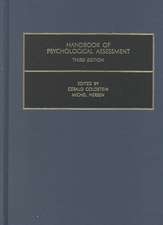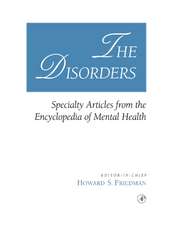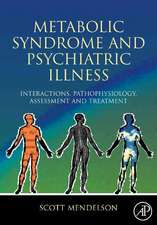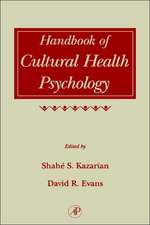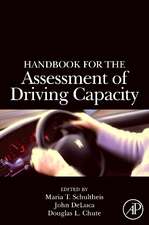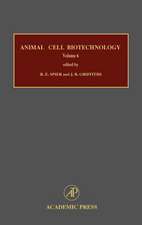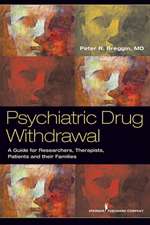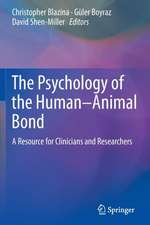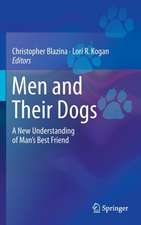Clinician's Guide to Treating Companion Animal Issues: Addressing Human-Animal Interaction
Editat de Lori R. Kogan, Christopher Blazinaen Limba Engleză Paperback – 13 sep 2018
Users will find sections on the many issues that arise during the lifespan of pet owners (e.g., children, young adults, elderly), as well as issues pertinent to specific populations (e.g., men, homeless, ethnically diverse). Additional topics include the violence link, pet death and bereavement, and behavioral issues. As the first book to approach human-animal interactions (HAI) from a multi-theoretical perspective, it helps clinicians appropriately acknowledge and incorporate relevant HAI issues within therapy to achieve goals.
- Provides practical information for immediate use in practice
- Focuses on common issues relating to companion animals
- Addresses bereavement, attachment, behavior, and more
- Includes interactive readings, case studies and therapeutic exercises
- Contains multiple theoretical orientations (behavioral, cognitive behavioral, family systems, humanistic and psychodynamic approaches)
Preț: 723.90 lei
Preț vechi: 943.27 lei
-23% Nou
Puncte Express: 1086
Preț estimativ în valută:
138.51€ • 145.01$ • 114.61£
138.51€ • 145.01$ • 114.61£
Carte tipărită la comandă
Livrare economică 31 martie-14 aprilie
Preluare comenzi: 021 569.72.76
Specificații
ISBN-13: 9780128129623
ISBN-10: 012812962X
Pagini: 594
Dimensiuni: 152 x 229 x 29 mm
Greutate: 0.79 kg
Editura: ELSEVIER SCIENCE
ISBN-10: 012812962X
Pagini: 594
Dimensiuni: 152 x 229 x 29 mm
Greutate: 0.79 kg
Editura: ELSEVIER SCIENCE
Public țintă
Clinicians providing counseling and therapy. Social workers, family therapists, psychologists, and counselorsCuprins
1. The human animal bond over the lifespan: A primer for mental health professionals
2. Animals and children’s development: Expanding the circle for psychotherapy
3. Dog Bites to Children: Family Interventions and Prevention Strategies
4. Adolescents and Pets
5. Providing Guidance on Psychiatric Service Dogs and Emotional Support Animals
6. Eight domains of pet-owner wellness: Implications for counselors and counselor training
7. Pets and the Therapeutic Process
8. Understanding Cross-Species Parenting: A Case for Pets as Children
9. Caregiving for Adult Pet Owners
10. The Role of Pets in the Personal Communities of People Living with Long-Term Conditions
11. Pets and relationships: How animals help us understand ourselves and our connections with others
12. How Connections with Companion Animals Impact Relationships with Self and Intimate Others
13. Working with men and their dogs: How context informs clinical practice when the bond is present in males’ lives
14. Integrating Clients’ Animals in Clinical Practice: Insights from an Animal-Informed Therapist
15. Persons Experiencing Prolonged Grief after the Loss of a Pet
16. Helping clients facing behavior problems in their companion animals
17. The “Dark Side of the Human-Animal Bond
18. Animal Abuse Issues in Psychotherapy
19. Homelessness and Animal Companionship
20. The Impact of Equine Ownership in Psychotherapy
21. Issues in serious veterinary illness and end of life care
22. Considerations in counseling veterinarians: Addressing suffering in those who care for animals
23. Following the loss of a companion animal: Aftercare & pet loss support
24. The human-animal bond and Hispanic clients in the USA
25. Pets and Human Diversity: Toward Culturally Competent, Culturally Humble Psychotherapy
26. Pets and older adults – the role of occupational therapy practitioners
27. Compassion Fatigue: Presenting Issues and Practical Applications for Animal Caring Professionals
28. The Ethics of Competency in Human-Animal Relationships
2. Animals and children’s development: Expanding the circle for psychotherapy
3. Dog Bites to Children: Family Interventions and Prevention Strategies
4. Adolescents and Pets
5. Providing Guidance on Psychiatric Service Dogs and Emotional Support Animals
6. Eight domains of pet-owner wellness: Implications for counselors and counselor training
7. Pets and the Therapeutic Process
8. Understanding Cross-Species Parenting: A Case for Pets as Children
9. Caregiving for Adult Pet Owners
10. The Role of Pets in the Personal Communities of People Living with Long-Term Conditions
11. Pets and relationships: How animals help us understand ourselves and our connections with others
12. How Connections with Companion Animals Impact Relationships with Self and Intimate Others
13. Working with men and their dogs: How context informs clinical practice when the bond is present in males’ lives
14. Integrating Clients’ Animals in Clinical Practice: Insights from an Animal-Informed Therapist
15. Persons Experiencing Prolonged Grief after the Loss of a Pet
16. Helping clients facing behavior problems in their companion animals
17. The “Dark Side of the Human-Animal Bond
18. Animal Abuse Issues in Psychotherapy
19. Homelessness and Animal Companionship
20. The Impact of Equine Ownership in Psychotherapy
21. Issues in serious veterinary illness and end of life care
22. Considerations in counseling veterinarians: Addressing suffering in those who care for animals
23. Following the loss of a companion animal: Aftercare & pet loss support
24. The human-animal bond and Hispanic clients in the USA
25. Pets and Human Diversity: Toward Culturally Competent, Culturally Humble Psychotherapy
26. Pets and older adults – the role of occupational therapy practitioners
27. Compassion Fatigue: Presenting Issues and Practical Applications for Animal Caring Professionals
28. The Ethics of Competency in Human-Animal Relationships

